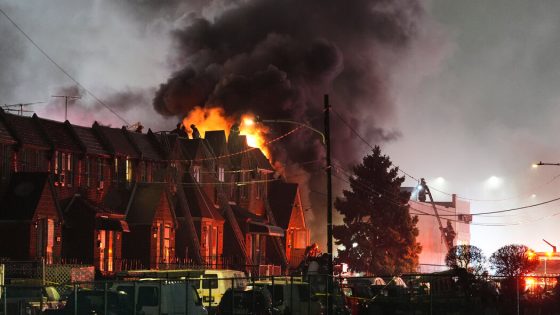A 14-year-old boy was arrested on January 23, 2025, for allegedly plotting an attack on a mosque in Molenbeek. Authorities discovered weapons during a search of his home, raising concerns about rising extremism among youth. How can we address the growing trend of radicalization in young people?
- 14-year-old arrested for mosque attack plans
- Weapons seized during search operation
- Suspect linked to right-wing extremism
- Investigation handled by Brussels prosecutor's office
- Increase in minors involved in terrorism cases
Growing Concerns Over Youth Radicalization and Extremism
The arrest of this young boy raises critical questions about how we can prevent youth from being drawn into extremist ideologies. What factors contribute to such alarming behavior? With increasing reports of minors involved in terrorist activities, it’s essential to understand the roots of this issue.
The Role of Extremist Ideologies Among Young People
This incident reflects a disturbing pattern where minors are increasingly influenced by radical beliefs. Experts highlight that exposure to extremist content online and social environments can play significant roles in shaping these dangerous ideologies.
Key Factors Contributing to Youth Radicalization
Understanding why some youths gravitate toward extremism is crucial for prevention efforts. Here are some key factors:
- Online Influence: Access to extremist content via social media platforms.
- Lack of Support: Absence of guidance or mentorship at home or school.
- Cultural Isolation: Feelings of alienation within their communities.
- Mental Health Issues: Unaddressed psychological challenges that may lead to seeking belonging through violent means.
The Importance of Community Engagement and Education
Tackling youth radicalization requires proactive community involvement and educational initiatives. Schools and local organizations must work together to create safe spaces for dialogue and understanding among diverse groups. Engaging students through workshops can foster critical thinking and resilience against extremist narratives.
The Need for Policy Changes and Interventions
Governments must also consider policy changes aimed at preventing radicalization among youths. This includes funding programs focused on mental health support, promoting inclusivity, and monitoring online activities related to hate speech or extremist propaganda. Effective intervention strategies could significantly reduce the risk posed by young extremists.
This situation underscores an urgent need for collective action—what steps will be taken next?
































